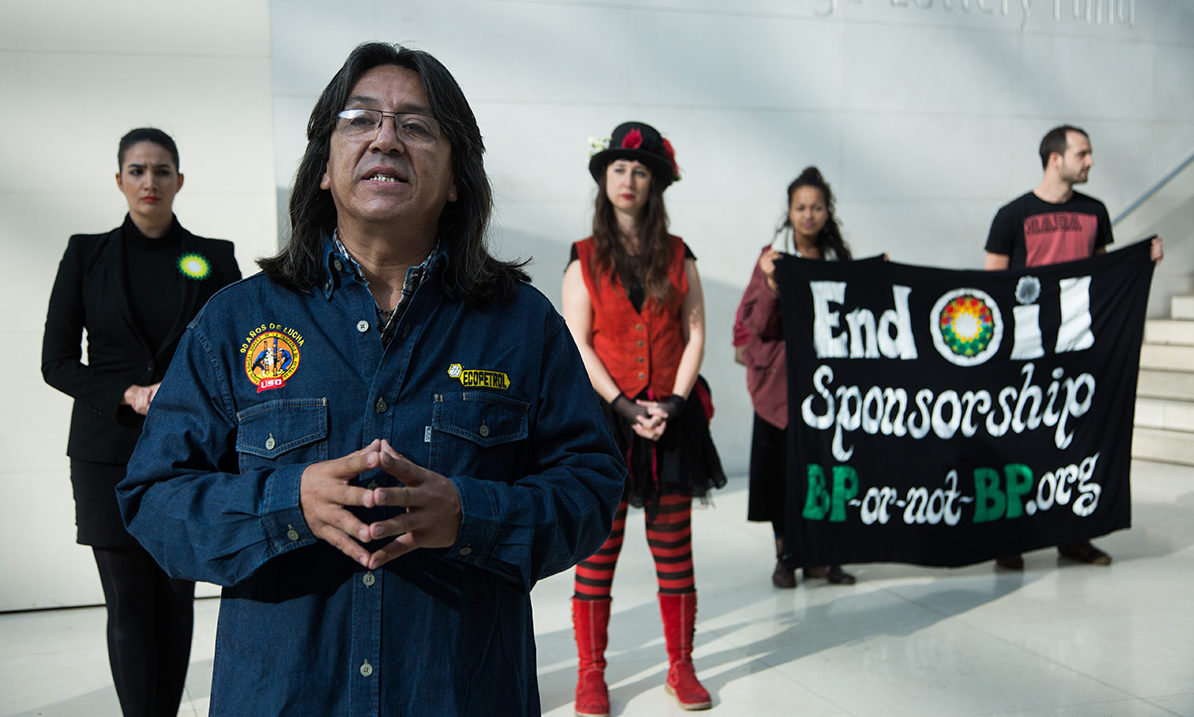While BP was working in Colombia from the 1990s to 2010, the oil company made payments to the Colombian Army and Ministry of Defence to protect its oil installations, in a region where thousands of trade unionists have been murdered and disappeared by armed groups.
The oil company has been accused of complicity in human rights abuses and environmental damage in the country – and although BP sold its Colombian assets in 2010, the fight for justice for the people affected by its operations still continues.
For example, BP played a central role in the construction of the Ocensa pipeline. In 2006, a group of Colombian farmers forced BP into a legal settlement, over their allegation that the pipeline had damaged the environment and therefore their livelihoods.
Film: Gilberto Torres at the BP-sponsored British Museum in 2015, with the activist theatre group BP or not BP?
In 2012, Colombian trade union leader Gilberto Torres brought legal action against BP in London on the grounds that the oil company was complicit in his kidnap and torture by paramilitaries. Gilberto and his union had been organising protests which disrupted oil production, in order to draw attention to the kidnapping and disappearance of other trade unionists.
However, Gilberto was advised to abandon the case in 2017 as the ‘procedural and financial challenges were too great’. As his lawyers noted at the time:
‘there is no equality of access to justice between a multinational oil company and an exiled trade unionist’.
For more information on BP’s activities in Colombia, see this summary by War on Want.
